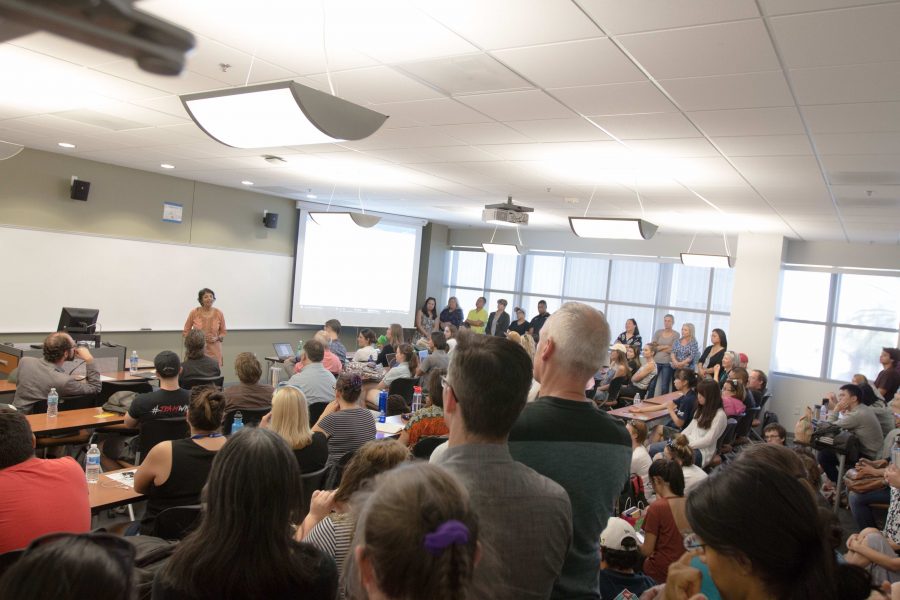Faculty panel analyzes election results, impact
November 28, 2016
Students, staff and faculty packed Markstein 210 on Nov. 10 to attend a post-election panel where faculty discussed the outcome of the presidential election.
Moderator and political science professor Staci Beavers opened the panel with fellow political science professor Stephen Nichols, speaking on voter statistics behind Election Day results.
Nichols’ primary analysis is that Clinton underperformed with African-Americans, Hispanics and women when compared to Obama. These voting demographics were crucial deciding-factors in several states.
Next, Nichols formulated the possibilities of why Trump’s victory surprised many. He mentioned possible sampling errors, the potential effect of Hillary’s leaked emails and how the votes of Michigan, Pennsylvania, Wisconsin and Florida turned the tables of Election Day.
Management professor Dr. Raj Pillai, discussed the element of leadership and what role it played between the candidates and their prospective voters.
She found voters look for someone that can shake up the status quo and stated, “I think the supporters of Trump certainly saw him as being much more charismatic.”
Professor Brian Dolber of the Communications Department followed up Pillai and addressed the role of the media. He first talked about the reconfiguration and regulation of media corporations and the fragmentation of the public sphere.
“Media elites are blind to large segments of the population,” Dolber said. “The use of alt-right social media is providing the data that can be used for campaigns.”
History professor Jill Watts discussed two facts that were critical to the Democratic and Republican parties. First, the abandonment of party ideology resulted in the alienation of constituents on both sides of the political spectrum.
The second fact covered the abandonment of the minority vote, which found less prominence in the results of the Democratic ticket when compared to the 2012 election.
Political science lecturer Dino Bozonelos identified three things that the Trump campaign had going in their favor.
First, the fear and anxiety of losing more jobs is an issue addressed by Trump regularly. Second, the sovereignty factor resonated with people who felt the need to take their country back. Trump also laid the groundwork for growing mistrust in government, which leads people to look for change regardless of their ideology.
Concluding the panel, professor Mary Jo Poole of the Sociology Department discussed the vitality behind local politics and millennial voters. She said, “You guys [millennials] don’t buy into this packaged b.s.!”
Poole was conveying that the younger generation doesn’t always take the spoon-fed information that elite media dishes out, further stating, “You all get your news from different places.”


